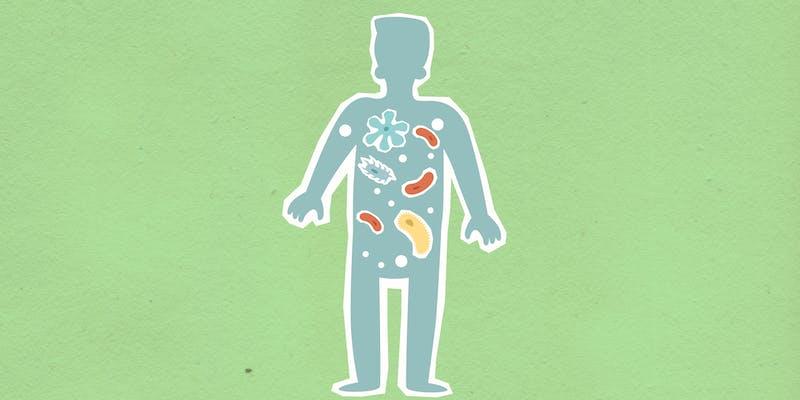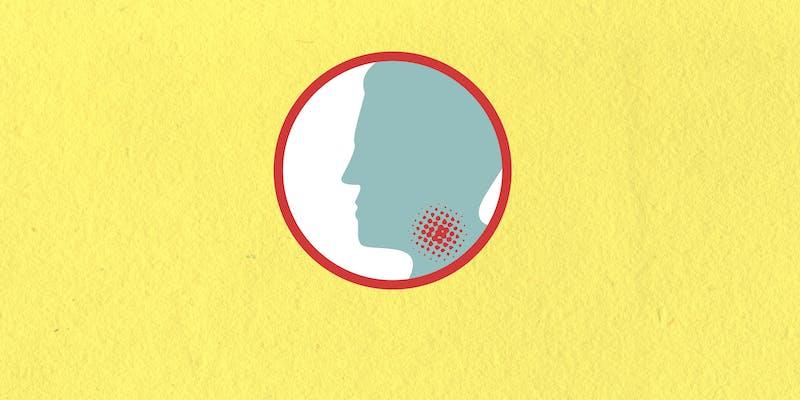Occasionally, after a meal, one may end up with heartburn or acid reflux, which leads to the feeling of burning. It's quite common. However, if this occurs frequently, at least twice a week or more, one should know because it might cause further throat complications. In digestion, your food flows down a tube (also known as the esophagus) through one muscle called the lower esophageal sphincter and finally to the stomach.
Heartburn or acid reflux occurs in cases where the LES relaxes prematurely. This act allows stomach acid to reflux. Although occasional burning sensation in throat is quite normal, persistent events lead to a disease condition called gastroesophageal reflux disease (GERD). Treatment of GERD is very important as this may relieve the discomfort and protect the throat and esophagus.
How GERD Can Harm the Esophagus

The pain you feel throughout heartburn is due to belly acid detrimental to the esophagus's lining. Over time, this repeated acid exposure can result in a condition known as esophagitis. Esophagitis inflames the esophagus, putting it at risk of accidents like sores, ulcers, and scar formation.
If you have esophagitis, you could enjoy ache, hassle swallowing, or sense extra acid coming back up. Doctors usually diagnose esophagitis with checks such as a higher endoscopy and a biopsy. If you are recognized with esophagitis, your health practitioner will possibly begin the cure and treatment directly. This is vital because an inflamed esophagus can lead to further fitness problems.
If Gastric Acid's Wrath is Left Untreated
When gastroesophageal signs of baby reflux at night and esophagitis go unchecked, the chronic stomach acid attack can severely damage your esophagus. Over time, this continual damage can cause several traumatic conditions, which may cause hiccups and throwing up:
Firstly, the esophagus can narrow, a situation called esophageal stricture. This can stem from scar tissue because of ongoing GERD or, in rarer instances, tumors. This narrowing can also make swallowing tough, even though meals are caught for your throat.
Moreover, one may notice esophageal rings. Tissue folds develop abnormally in the distal esophageal segment. These structures around the esophagus may contract, which leads to dysphagia. In conclusion, Barrett's esophagus occurs. This condition occurs as a result of acid attacks on the esophagus cells, which turn to look like those found in small intestines. Infrequent and frequently asymptomatic. Nevertheless, esophageal cancer is more likely to develop.
Treatment and control of GERD and burning sensation in throat can successfully save you these headaches, hiccups and throwing up. Studies display that steady treatment can lessen the danger of esophageal stricture by up to 60%. Furthermore, GERD symptoms substantially lower the probability of Barrett’s esophagus growing, as stated in a 2018 reporting file using the American College of Gastroenterology.
How Acid Reflux And Gerd May Damage The Throat

Heartburn and GERD can hurt the damaged and torn part of the esophagus and the upper throat. Sometimes, belly acid travels to the back of the throat or the nasal airway. Doctors name this laryngopharyngeal reflux (LPR).
LPR is often named “silent reflux” because its symptoms aren't constantly obvious. People with GERD should get checked for LPR to save damage to their throat or voice. Symptoms of LPR include:
- A heavy and rough voice
- Continually needing to clear the throat
- Feeling like there's a lump in the throat
- A cough that's there all the time or wakes you up
- Episodes of choking
- A sore throat
Managing Digestive Health
Maintaining a high level of health is also essential to adequately address the symptoms associated with frequent heartburn, GERD (gastroesophageal reflux disease), or LPR (laryngopharyngeal reflux disease). First, consult it with your healthcare provider. Besides professional advice, specific lifestyle changes can produce outstanding results—a guide to restoring habits that ensure the good functioning of our digestive system.
- Forego larger, infrequent meals and instead focus more on eating smaller amounts. This habit encourages digestion and wards off heartburn triggered by avoiding feet-filling-the-stomach loads. A health and diet survey concluded that only 30% of people who ate slowly had experienced heartburn as of 2021.
- Watch your belt size to avoid overeating. The American Dietetic Association has found that controlling portion sizes can lessen GERD symptoms by 40%.
- If you are a little overweight, reduce this by exercising more and moving around. A 2020 medical survey showed that 10% weight loss would improve GERD symptoms 50% better.
- Eat more fiber-rich foods. A diet high in fiber not only aids digestion but also helps to maintain good weight. The USDA recommends for people over 20 to have 25-30 grams of fiber daily.
- Fruits and greens are not just fiber resources; they contain vitamins and antioxidants. The CDC said in 2022 that those who consumed five servings of fruits and greens daily had a 20% decreased risk of digestive problems.
- Staying upright for at least one hour after a meal saves your stomach contents from flowing back into the esophagus. A 2019 health guiding principle suggested this may lessen signs of baby reflux at night episodes by 22%.
- Plan your closing meal for day, 2 to a few hours before bedtime. This addiction, recommended by the National Sleep Foundation, enables you to have midnight reflux.
- Be careful about what you eat. Foods high in fat and sugar, in addition to certain drinks like alcohol and caffeine, are regarded as triggers. A Harvard study confirmed that casting off these can lessen heartburn episodes by up to 37%.
- Keeping your weight in fitness isn't pretty much aesthetics; it’s approximately fitness. The WHO states that a healthy BMI ranges from 18 to 5 to 24.9, correlating with reduced reflux occurrences.
- Smoking cessation is important. Research from 2023 indicated that non-people who smoke have a 30% decrease in the hazard of developing GERD compared to people who smoke.







